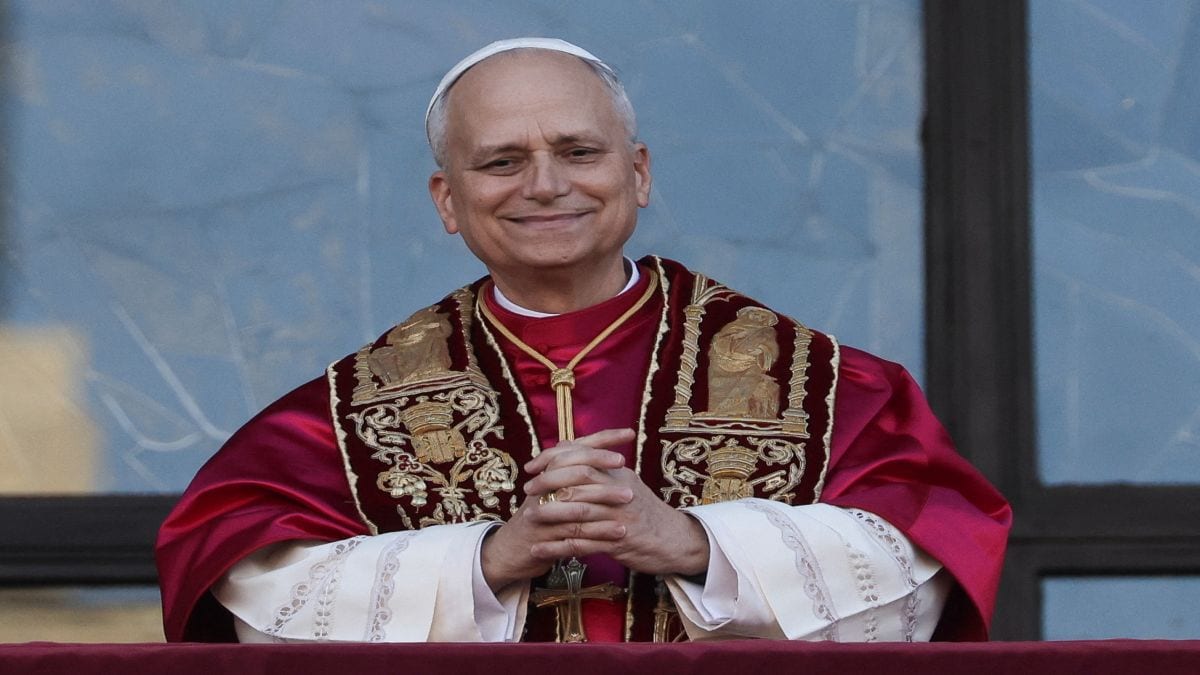It’s been almost three weeks since the Catholic Church got a new head in the form of Pope Leo XIV. However, the election of the first US-born pontiff has also presented a unique legal and diplomatic situation. That’s because it has put him in the thorny position of being an American, who is now also a foreign head of state.
For those who don’t know, Pope Leo, born in Chicago as
Robert Prevost
, holds dual citizenship of the US as well as Peru, where he spent a great deal of time as a missionary and bishop. Now, as he has been made the head of the Catholic Church, he also serves as the head of Vatican City, an independent state.
This has raised the question — can the pope remain a US citizen while leading a foreign government?
Is the Vatican considered a sovereign nation?
In addition to being the spiritual leader for what the church says is roughly 1.4 billion Catholics worldwide, Leo is also the head of what’s recognised as the world’s smallest nation. Vatican City covers just 0.44 square kilometres and has a population of a few hundred people. It became an independent state in 1929 under a treaty between Italy and the Holy See.
Could Leo be stripped of his US citizenship?
Americans working for foreign governments aren’t automatically at risk of forfeiting their US citizenship. But the US State Department says on its website that it may “actively review” the citizenship status of Americans who “serve as a foreign head of state, foreign head of government, or foreign minister.”
“Such cases raise complex questions of international law, including issues related to the level of immunity from US jurisdiction that the person so serving may be afforded,” the policy states.
The State Department declined to comment on the pope’s status. A spokesperson said the department doesn’t discuss the citizenship of individuals.
The core issue is whether foreign leaders should hold American citizenship when they also enjoy broad immunity from US laws, said Peter Spiro, a Temple University law professor and an expert on citizenship law. Such immunity clashes with the constitutional principle that no US citizen should be above the law.
However, the US Supreme Court in a 1980 decision ruled that Americans can’t be stripped of their citizenship unless they intentionally renounce it.
“The State Department never assumes that you intend to lose your citizenship unless you specifically say so through the renunciation process,” Spiro said.
He said it would be hard to argue that Leo, by becoming pope, demonstrated an intent to give up being a US citizen. “I think it’s highly unlikely that the US moves to terminate the pope’s citizenship,” Spiro said.
Pope Leo XIV waves as he arrives for his first weekly general audience in St. Peter’s Square at The Vatican on May 21. File image/APCan the pope remain a citizen of Peru?
Peruvian law has no conflict with Pope Leo remaining a citizen, said Jorge Puch, deputy director of registry archives at Peru’s National Registry of Identification and Civil Status.
Leo was granted Peruvian citizenship in August 2015, the month before Pope Francis appointed him bishop of Chiclayo in the South American country’s northern region. To qualify, he had to live in Peru for at least two years and pass a civics test.
“It is the most praiseworthy thing our beloved supreme pontiff could have done: Wanting to have Peruvian nationality without having been Peruvian by birth,” Puch said.
All adult Peruvians, including naturalised citizens, are required to vote in elections through age 69. Voting in Peru’s presidential election next April won’t be mandatory for Leo. He turns 70 in September.
Pope Leo XIV is greeted by Rome’s Mayor Roberto Gualtieri at the foot of Capitoline Hill, in Rome. APDid prior popes retain their citizenship?
It’s not clear what happened to the citizenship status of Leo’s predecessors once they became pope. That’s not information the Vatican discloses.
Pope Francis renewed his passport in his home country of Argentina in 2014, the year after he became pope. German-born Pope Benedict XVI and Pope John Paul II, a native of Poland, never publicly relinquished citizenship in their home countries.
John Paul was the first non-Italian pope in 455 years.
Margaret Susan Thompson, a Syracuse University history professor and expert on American Catholicism, said she doubts Leo would renounce his US citizenship. But she believes the new pope was sending a message when he delivered his first speech in Italian and Spanish without using English.
“I think he wants to stress that he is the pope of the universal Catholic Church,” Thompson said, “and not an American holding that position.”
Have US citizens served as leaders of a foreign government?
Yes. There are a few notable examples. Former British Prime Minister
Boris Johnson
was born in New York to British parents in 1964. He left the US as a young boy and renounced his American citizenship in 2016 while serving as the UK’s foreign secretary. Johnson became prime minister three years later.
Mohamed Abdullahi Mohamed was an American citizen when he was elected president of Somalia in 2017. Born in Somalia, he moved to the US in 1985 and became a citizen in the 1990s. Mohamed gave up his US citizenship two years into his presidency.
Valdas Adamkus became a US citizen after his family fled Lithuania to escape Soviet occupation. He returned to win Lithuania’s presidency in 1998, years after the Soviet Union collapsed. He relinquished his American citizenship after being elected.
With inputs from Associated Press
